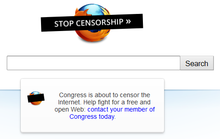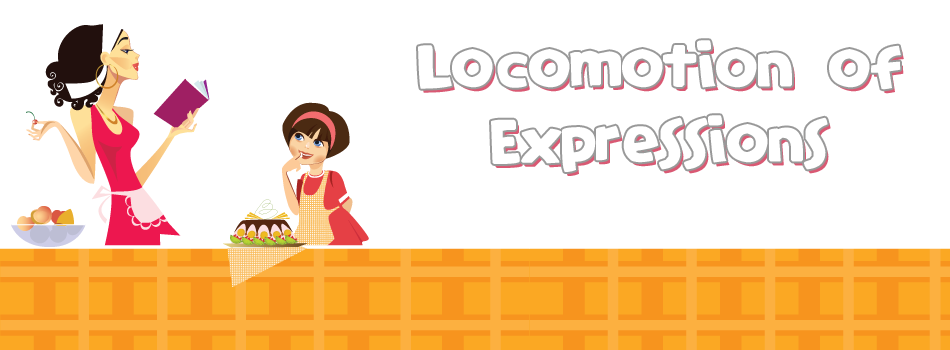 Opponents say that it violates the First Amendment,[7] is Internet censorship,[8] will cripple the Internet,[9] and will threaten whistle-blowing and other free speechactions.[7][10]
Opponents say that it violates the First Amendment,[7] is Internet censorship,[8] will cripple the Internet,[9] and will threaten whistle-blowing and other free speechactions.[7][10] Source WIKIpedia
http://en.wikipedia.org/wiki/Stop_Online_Piracy_Act#Arguments_against
FROM THE WARRIOR FORUM
Click to read MORE: http://www.warriorforum.com/ about what YOU can do!
 How It Would Work
How It Would WorkHere's the simple version: If the Justice Department or any copyright holder accused a site of "encouraging or facilitating" piracy, the government could order that site removed from US-based search engines and ad networks, forbid payment processors from handling transactions for them, and require ISPs to block access to those sites by their customers.
Let's consider how that might apply to this forum... There are currently over 335,000 pages on this site. If just one of those pages contained a single post promoting an illegal download, or one WSO seller has used graphics or code from a copyrighted product without permission, or we miss just one Chinese spam for counterfeit goods, we could be blocked.
Would it matter that we actively look for and delete those posts? Maybe, but only after the process had begun. And we'd probably never know about it until the block was in place.
The amount of time that it would take to correct such an unjustified blocking would cause permanent damage to any interactive site. Shifting the membership away from a destination for that long nearly guarantees the site would never recover.
Along with that, there is no requirement that payment processors re-accept a site that has been blocked this way. You know how these guys work: They don't care if the site is eventually found innocent. They'd label it as "high risk," and never deal with it again. And they'd probably start creating whole new categories to lock out, just to avoid the headaches.
"You let visitors post on your site? Sorry. We don't accept interactive services in our network."
And, unless the ISPs are working from a centralized and regularly updated database, it's unlikely most of them would ever remove the blocks once they were in place.
Mistakes would almost certainly be fatal to the target sites. We're talking about legitimate sites that provide real value for their visitors and real incomes for their operators and their families.
It is unclear at this point whether the legislation would affect sites based in the US, or if it applies only to "foreign" sites. Even if it doesn't start out applying to sites hosted in the United States, do you really think it will stay limited to "offshore sites" for long?
And how do we justify sitting by while our friends around the world are subjected to this potential for arbitrary blocking within the US?
Don't Think This Will Affect You?
Maybe you aren't involved in a market where this would seem to matter, and you're not interested in the principle of the thing. Consider a few possible examples that might make the reach of this Congressional folly clearer.
Any blogs you like? Keep in mind how many of them are hacked every day. One of the main activities for those hackers is pointing the victim sites to online shops selling illegal drugs.
*POOF*
Gone.
Hang out at any scrapbooking sites? A lot of them let the members share their original page themes and other digital scrapbooking elements. If one clueless designer uses graphics from a catalog or other copyrighted source, your fun little hobby community could be taken away from you. And the site owner could lose their income.
Use shareware or freeware? Legitimate software libraries, like CNet's, would be prime targets. After all, it only takes one mistake.
Do you surf using proxies to protect your privacy? Forget that. It's only a matter of time before that's marked as a refuge for pirates and they're blocked.
Have you ever tried to keep track of which sites are pirating your products? If you live in the US, you can forget that, too. Once they hit the blocklist, you can't see them. Which means you can't take any action to reduce the damage.
That's just the tip of the virtual iceberg.
The real damage will begin when the pirates implement new systems for distributing their warez. Evading a domain-based list is child's play for experienced people, and pirates really don't care if it's illegal. If they did, they wouldn't be pirates.
And it won't just be the traditional pirates who join in. Anyone who's studied history knows that prohibition just romanticizes the suppliers and users, and creates networks dedicated to serving that "heroic" image.
And, of course, there's the problem of retribution. If the US starts arbitrarily blocking access to foreign sites from within our country, how long do you think it will be before other countries develop similar approaches to advancing their political goals, and block their citizens from accessing sites they don't deem suitable? keep reading this article Go to the warrior forum READ MORE













































0 comments:
Post a Comment
Wait! If you are entering my giveaway, please make sure you are following my blog through Google Friend Connect. It is NOT mandatory -However, karma begs that you do! Here's why; the more followers this blog has, the more great things I can continue to bring you. Remember in order to win on Locomotion of Expressions, all you have to do is place one comment stating that you want to win.